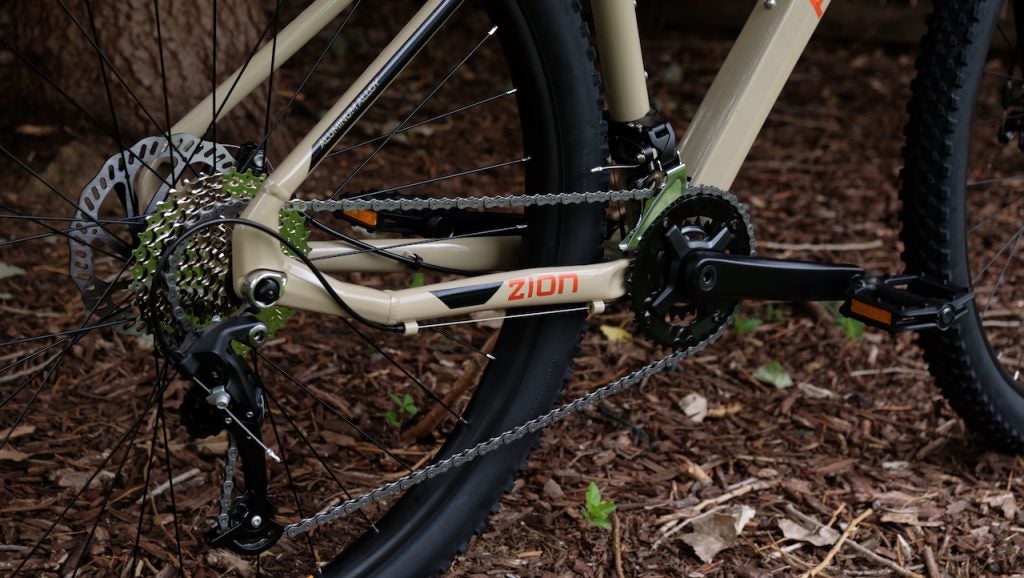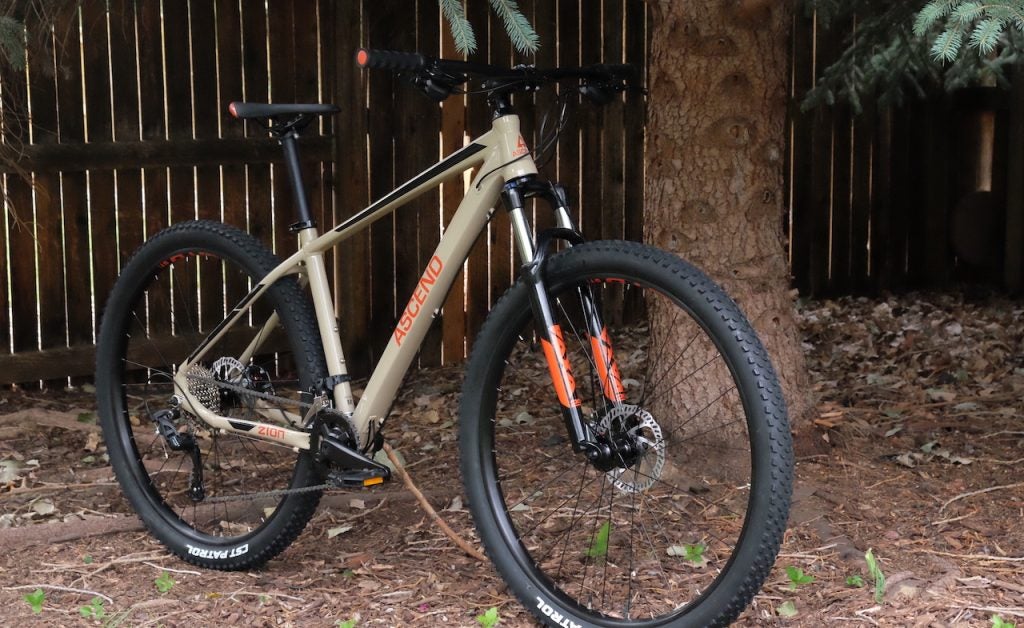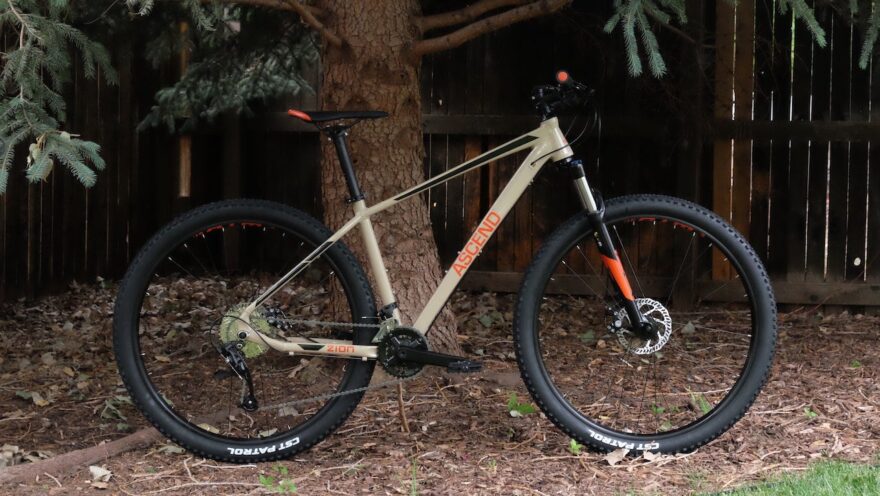
The Ascend Zion is a value-packed bike for commuting, riding on bike paths, gravel roads and beginner-friendly singletrack trails. Credit: Josh Patterson/ActionHub
Bass Pro and Cabela’s have launched a line of budget-friendly bikes to get new riders into the sport. These bikes are targeted at consumers who want to start riding but might not venture into specialty cycling retail stores. The Ascend family of bikes includes a fat bike, cruiser, hybrid, kids’ bikes, and multiple mountain bike models. Tested here is the $599 Ascend Zion 29er Hardtail, which is on sale for $350 at the time of writing.
Pros:
- Fast-rolling tires are good for mixed-surface riding
- 29″ wheels inspire confidence when rolling over obstacles
- 2X Microshift-drivetrain is good for the price
- Reliable mechanical disc brakes
Cons:
- Upright riding positioning and quick handling are not ideal for serious off-road riding
The Build
The Ascend Zion features an aluminum frame and 29-inch wheels. Mountain bikes from the early days of the sport featured 26″ wheels, similar to those found on many cruiser bikes. The vast majority of modern mountain bikes are shod in 27.5 or 29-inch wheels. The benefits of larger, 29-inch wheels is apparent as soon as you leave the pavement and venture onto singletrack. Larger wheels maintain more momentum and roll over rocks and roots with less effort than smaller wheels.
The Zion sports a 2×9 drivetrain, which is shorthand for two chainrings up front and nine cogs on the cassette. High-end mountain bikes shifted away from drivetrains with multiple chainrings in favor of a single chainring with 11 and then 12-speed cassettes starting a decade ago. In this price range, however, it’s still common to find mountain bikes with 2x and even 3x drivetrains.
Bringing the Zion to a stop are a pair of mechanical disc brakes. Hydraulic disc brakes have more power, but for the average recreational user, mechanical disc brakes offer the benefit of easy user-servicabilty with nothing more than a set of metric Allen keys.
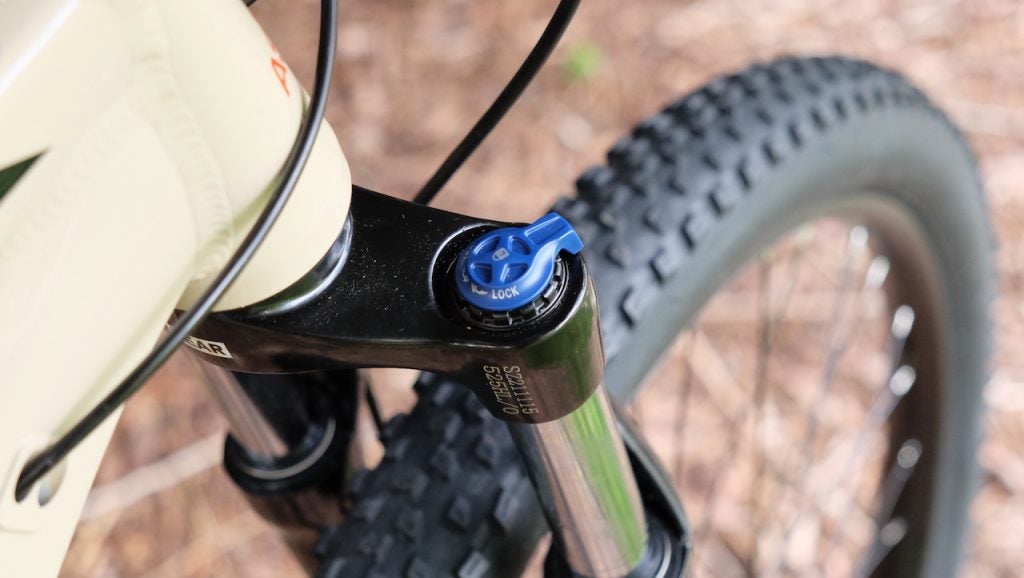
The Zion’s suspension fork features a lockout to keep the fork from bobbing when riding on pavement. Credit: Josh Patterson/ActionHub
Ascend equipped the Zion with a suspension fork with a lockout lever. Suspension forks improve comfort and confidence when riding offroad, but they can zap energy when riding on pavement. This lockout lever makes it easy to stop unwanted suspension movement on smooth surfaces.
Ascend Zion Ride Impressions
The majority of the mountain bikes I test retail for between $6,000 and $12,000 and are designed for expert-level riders such as myself. That’s not the target audience for this $599 mountain bike. The Zion is more a hybrid than a mountain bike in the sense that it’s intended for casual use on roads, bike paths and green-rated singletrack trails.
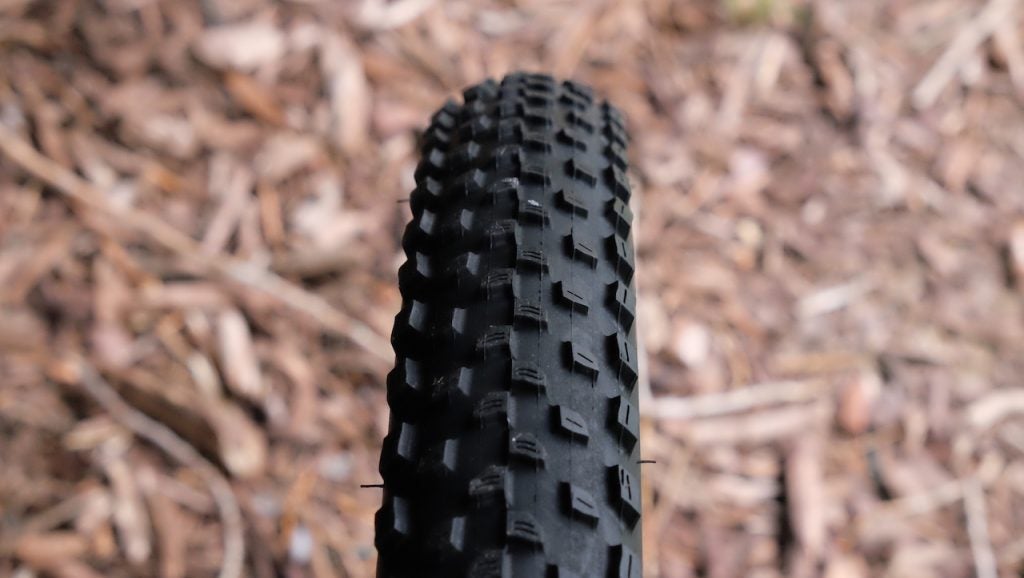
The Ascend Zion is equipped with knobby tires that work well on pavement, gravel and dirt. Credit: Josh Patterson/ActionHub
For this “hybrid” use, the Zion performs very well. The rider positioning is comfortable and upright, which makes it easy to stay alert and aware of your surroundings. Likewise, the 29-inch wheels with fast-rolling, low-profile knobby tires work well on pavement and dirt.
As stated in the build description, the Zion features a 2×9 drivetrain. A 1x drivetrain would have been my preference. I’ve found that 1x drivetrains are easier for novice mountain bikers to master since there’s only one shift lever to operate. Even so, a 2x is preferable to the older 3x drivetrains still used by some of the Zion’s direct competitors, such as the Schwinn Mesa and Trek Marlin 4—both of which are also more expensive than the Ascend Zion.
The only area where the Zion falls short is in true off-road performance. The 100mm coil-sprung suspension fork is easily overwhelmed by repeated high-speed impacts, such as the kind encountered when speeding through rockgardens and over root-infested trails. The Zion’s geometry, meaning the angles of the frame that influence the bike’s handling, don’t lend themselves to aggressive riding.
The steep head tube angle, short wheelbase, and upright riding position make it agile pavement but don’t inspire confidence on steep singletrack descents. Keep in mind, that these examples are at the far end of the Zion’s range of use. Still, these factors are worth keeping in mind—especially if you’re considering purchasing an entry-level bike that can grow with you as your skills as a mountain biker progress.
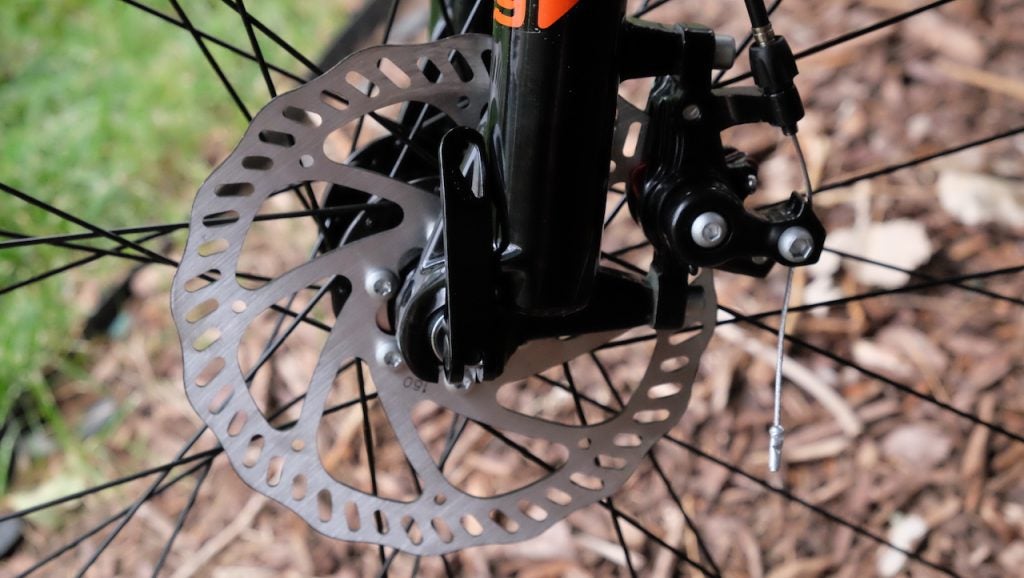
Mechanical disc brakes are user-friendly and provide more stopping power than rim brakes. Credit: Josh Patterson/ActionHub
Overall, I think the team behind Ascend did their homework in equipping the Zion with a budget-friendly assortment of parts that meets the needs of its target users. The Zion is better equipped than similar bikes from Trek and Schwinn that retail for $20 and $30 more, respectively.
Who is the Ascend Zion for?
So who is the right rider for this bike? If you’re looking for a dedicated mountain bike for serious off-road riding, you’re going to have to increase your budget. Check out our guide to the Best Beginner Mountain Bikes for some suggestions. If on the other hand, you want an affordable bike that can take you to and from work or school and that can be used on bike paths and beginner-friendly singletrack trails, the Ascend Zion packs a lot of value into a capable package.
Bottom Line
The Ascend Zion is a good first mountain bike for young riders ready to graduate to big wheels and for adults who want a capable bike they can ride on bike paths, gravel roads, and for light-duty trail riding. Its steep head angle and upright seating position don’t lend themselves to aggressive riding on rough terrain. As a result, the Zion is not the best choice for riders who see themselves getting deeper into the sport of mountain biking.
We are committed to finding, researching, and recommending the best products. We earn commissions from purchases you make using the retail links in our product reviews. Learn more about how this works.
 Your Privacy Choices
Your Privacy Choices
